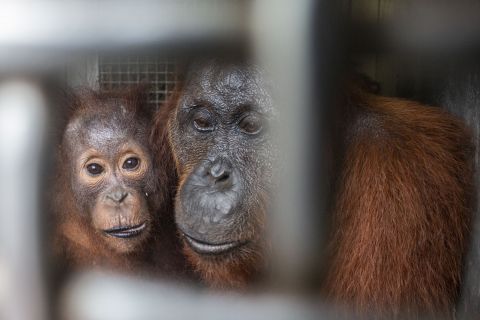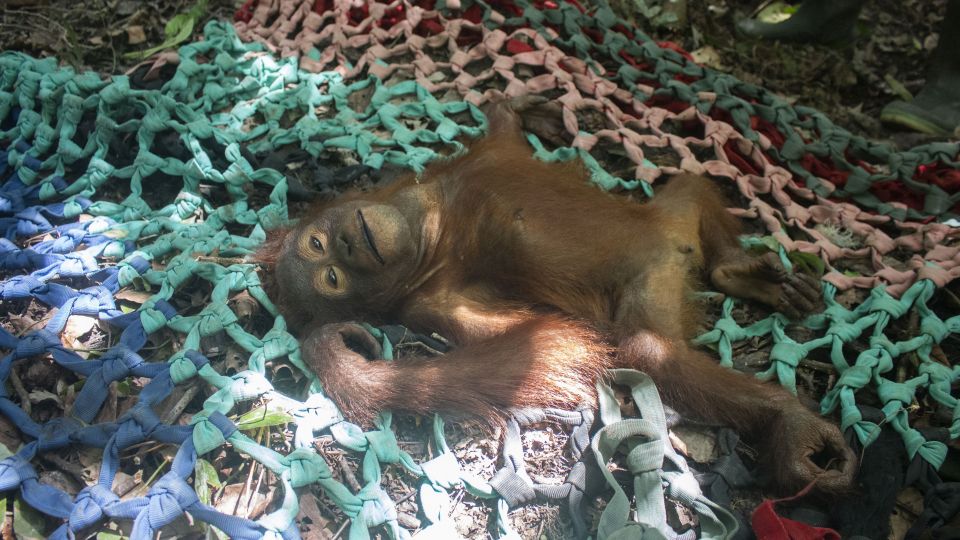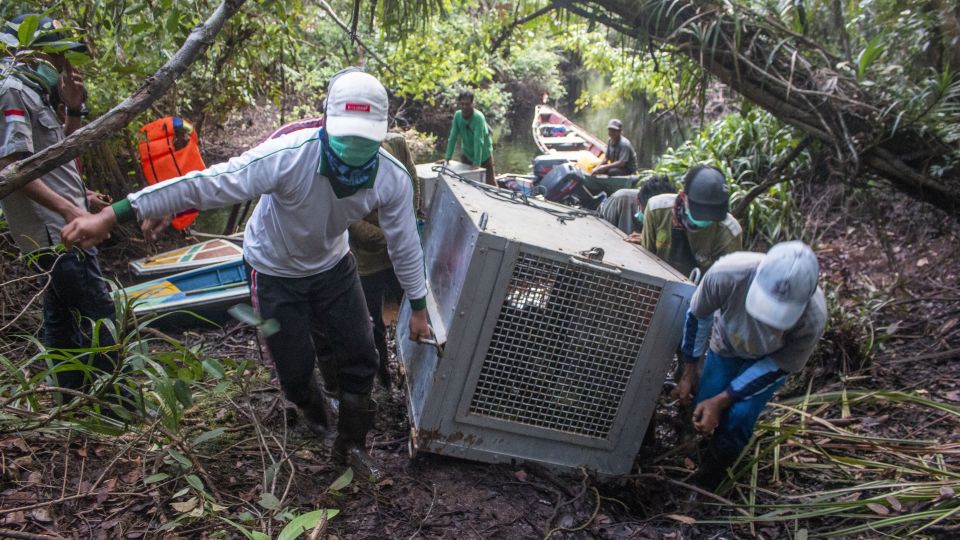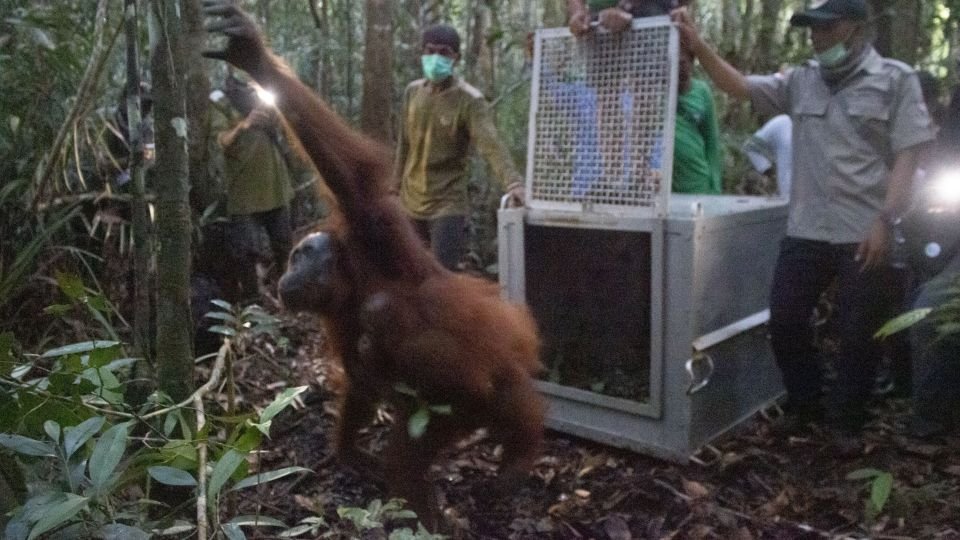
Our team in Indonesia has carried out the rescue and translocation of a mother and baby orangutan stranded in a fragment of forest in West Borneo. The operation was carried out by members of the West Kalimantan Natural Resources Conservation Centre (BKSDA), the Office of Gunung Palung National Park (TNGP) and IAR Indonesia. The pair were rescued from Semanai Hamlet, Simpang Tiga Village, Sukadana District, North Kayong District.
The rescue was prompted by reports from local residents in early May claiming that there were orangutans on their land. After receiving the reports, IAR’s Orangutan Protection Unit (OPU) coordinated with the BKSDA and the TNGP to go and verify them.

The verification team found the mother orangutan on a narrow strip of land of about 13 hectares. By using a drone, the rescue team could confirm that the forest area was surrounded by roads, settlements and fields belonging to the residents.
Following up on the findings of the verification team in the field, IAR Indonesia, together with the BKSDA and the TNGP, formed a rescue team to evacuate the orangutans from the community gardens and return them to their natural habitat. The rescue team set off from our office at 4am armed with a dart gun to anaesthetise the orangutans and capture them safely.
The process of anaesthetising orangutans needs to be done carefully and by an expert. The situation in this instance was even more challenging because the baby orangutan had been separated from his mother and would have to be shot separately. The team would have to be particularly careful when shooting the baby because one small mistake could prove fatal for the infant.
After struggling in the forest for more than six hours, the team was finally able to evacuate the mother and baby. From the results of the examination by the medical team, the mother was in good condition and so able to be directly translocated to a new, safe area of forest.
The two orangutans were immediately translocated into the TNGP area of Kubang Resort, Batu Barat Village, Simpang Hilir District, North Kayong Regency. In addition to these two orangutans, a young orangutan called Riam had been released there at the beginning of the month.
Problems related to forests and land clearance are the main reason why orangutans enter people’s gardens. Fires in 2015 burned most of the forest in this region and the orangutans were forced out of their natural habitat in search of food. The habitat where they lived and found food was destroyed so the mother and baby had to go into people’s fields. The conversion of forests into fields and settlements contributes to the increasing number of orangutans seeking food outside their natural habitat.

Sadtat Noor, Head of the West Kalimantan BKSDA, said: “Animal and human conflicts will always occur if humans are not wise in their use and handling of nature. In the future, a more comprehensive policy should be made, particularly in relation to land use. However, conservation work is indeed endless. Humans are supposed to be the smartest creatures on earth and we have the greatest responsibility to look after the natural world.”
Ari M Wibawanto, Head of the TNGP Centre, said: “Rescue and translocation is actually the last solution in our efforts to save orangutans. There is no standard formula in handling orangutan conflicts. The most important thing is that orangutans are safe and the community is not harmed. Therefore it is necessary to conduct in-depth discussions with the government, NGOs and the private sector to prevent conflicts, particularly considering that during this year there have been several conflicts between orangutans and the community. I hope that we will not only act after reports of conflict occur, but can work out how to prevent the conflict from happening in the first place.”

Karmele Llano Sanchez, IAR Indonesia Director, said: “These rescued orangutans are still suffering from the terrible forest fires that destroyed Kalimantan in 2015.
Forest fires are one of the biggest threats to orangutans’ lives. We continue to work with all stakeholders, including the BKSDA, the TNGP, the police, local government and local communities to protect orangutan habitat from fires. If the 2015 forest fires were to be repeated, orangutans would suffer a disastrous fate.”

